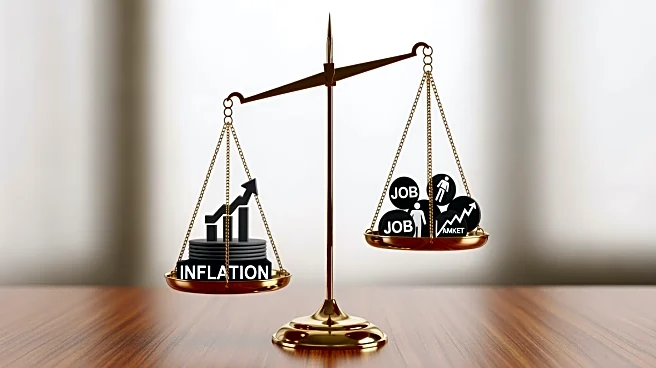What's Happening?
Federal Reserve Chair Jerome Powell is expressing caution regarding further interest rate cuts in December due to a weakening job market and persistent high inflation. The Federal Reserve recently cut its
benchmark rate for the second time this year to support the economy. However, Powell and other Fed officials are concerned that additional rate cuts could exacerbate inflation. The current economic environment presents a challenge for the Fed, as it navigates between supporting economic growth and controlling inflation. Investors have adjusted their expectations, now predicting a 65% chance of a rate cut in December, down from a previous 90% likelihood.
Why It's Important?
The Federal Reserve's decisions on interest rates have significant implications for the U.S. economy, affecting everything from consumer borrowing costs to business investment. A cautious approach by the Fed could stabilize inflation but may also slow economic growth if the job market continues to weaken. Conversely, further rate cuts could stimulate economic activity but risk fueling inflation. The Fed's actions are closely watched by investors, businesses, and policymakers, as they influence economic confidence and financial markets. The current situation underscores the delicate balance the Fed must maintain in its monetary policy.
What's Next?
The Federal Reserve will continue to monitor economic indicators, including employment and inflation data, to inform its decision-making process. The upcoming Federal Open Market Committee meeting in December will be critical, as it will determine whether another rate cut is warranted. Stakeholders, including investors and businesses, will be closely watching for any signals from the Fed regarding its future policy direction. The outcome of the meeting could have wide-ranging effects on financial markets and economic sentiment.









